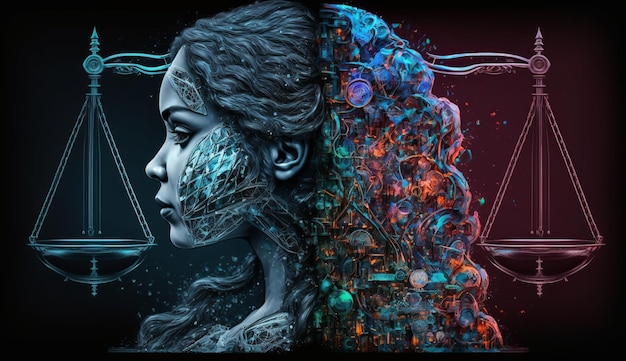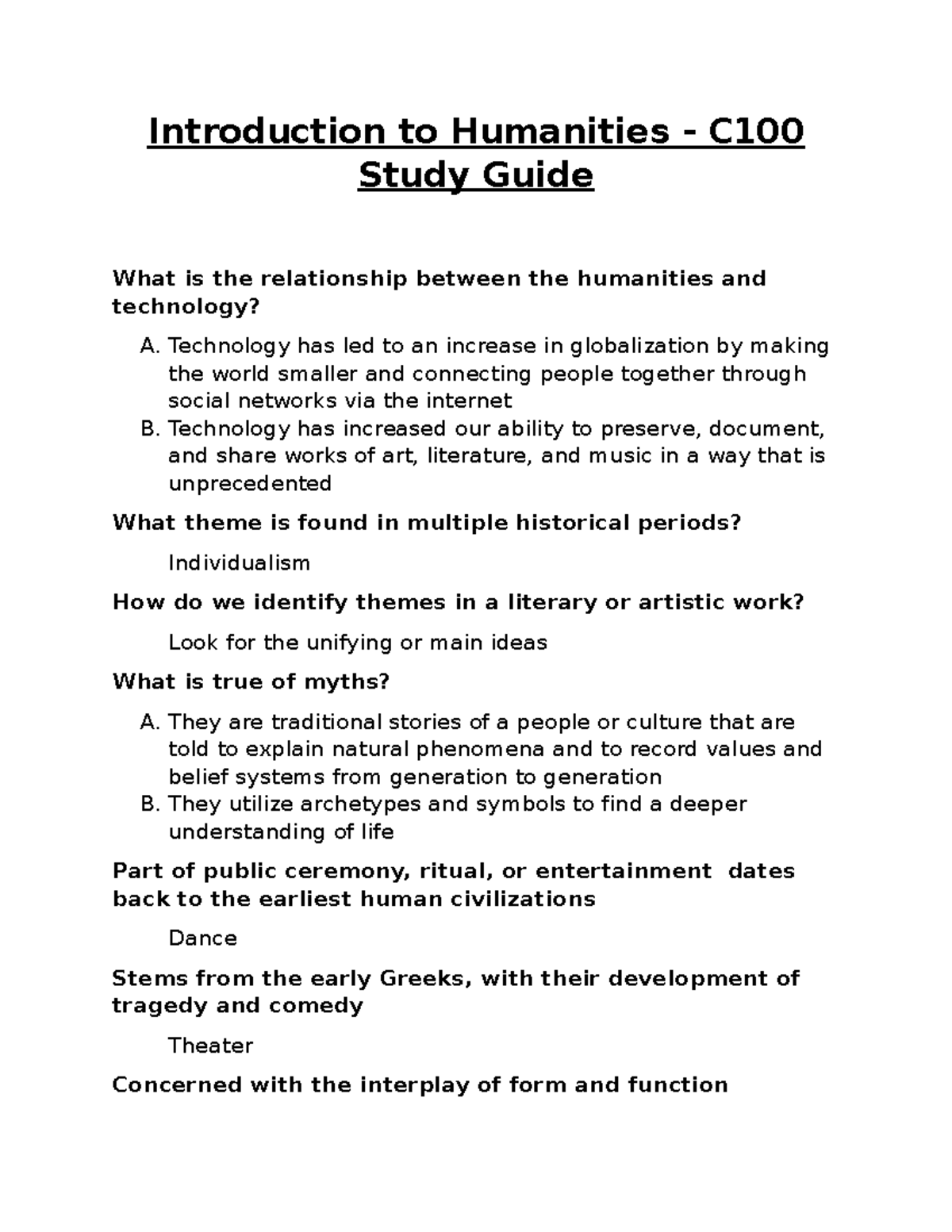AI and Social Justice: Ruha Benjamin’s Vision for the Future
May 6, 2025 | Culture News | No Comments

AI and social justice intersect in profound ways, prompting urgent reflection on how technology can either uplift communities or exacerbate existing inequalities. As Ruha Benjamin argues, the future of AI should not be dictated solely by tech elites, whose interests often prioritize profits over human values. Instead, this discourse invites us to examine the broader implications of AI ethics and the importance of social justice in technology. Benjamin’s insights challenge us to confront the biases embedded in AI systems, which have led to alarming instances of discrimination and oppression. By embracing a holistic view of AI that incorporates diverse perspectives, we can pave a more equitable path forward.
The dialogue surrounding artificial intelligence and equity reveals the critical need for an inclusive approach to technological development. This conversation, led by thinkers like Ruha Benjamin, advocates for a model where the principles of fairness and social equity guide the advancement of AI. In contemplating the advancements in machine learning and automated systems, it becomes evident that a commitment to ethical practices in technology is paramount. Benjamin’s work underscores the necessity of incorporating human-centric values into AI innovations to ensure that these tools serve the greater good rather than perpetuating historical injustices. As we navigate this complex landscape, redefining our relationship with AI through the lens of social equity can transform our societal fabric.
Reimagining the Future of AI: A Call for Imagination and Vision
Ruha Benjamin’s insights on the future of artificial intelligence compel us to reshape our understanding and imagination regarding technological advancements. She emphasizes that the future does not have to be dystopian, despite the narratives often pushed by tech elites. By advocating for a reimagined vision of AI, Benjamin encourages individuals to envision a world that transcends current oppressive structures. This imaginative leap is essential as we navigate discussions on social justice in technology; envisioning an equitable future requires creativity and collaboration that go beyond conventional approaches, often dominated by profit-centric mindsets.
In her Tanner Lectures, Benjamin underscores the significance of integrating creative thinking into our technological narratives. She invites us to interrogate the very fabric of our beliefs about what a tech-driven future could look like. By merging ethics with creativity, we can challenge the notion that AI is an ultimate solution devoid of bias or historical context. Her plea for unity between the arts and sciences highlights the necessity to value a diversity of perspectives when addressing the multifaceted challenges posed by emerging technologies.
The Ethical Dilemmas in AI Development: A Reflection on Human Values
As Benjamin articulates, the ethical dilemmas surrounding AI development cannot be overlooked. The notion that machines operate purely on mathematical principles has significant implications for how society engages with technology. When algorithmic systems dictate human outcomes, the potential for perpetuating societal injustices becomes alarmingly high. By framing AI as a ‘neutral’ decision-making tool, we obscure the biases that are inadvertently encoded within these systems, thereby exacerbating existing inequalities. Benjamin’s examination of AI through the lens of human values calls attention to the responsibility developers must uphold in considering the moral weight of their innovations.
Moreover, Benjamin critically evaluates the allure of advanced technologies that promise efficiency but fail to address the underlying prejudices that fuel their design. This rhetoric of progress can obfuscate the real human costs associated with AI systems, such as automated accountability failures that disproportionately affect marginalized communities. Therefore, it is imperative that discussions about AI ethics extend beyond technical solutions, encompassing a broader understanding of social justice and the impact on human values. Addressing these concerns is essential for fostering a future where technological development is inclusive and just.
AI and Social Justice: Bridging the Divide with Inclusive Innovation ## As we continue to engage with the dialogue around AI, Ruha Benjamin firmly situates the conversation within the context of social justice. With the rapid evolution of AI technologies, it is crucial to recognize how these advances can perpetuate systemic oppression if not carefully managed. Benjamin’s assertion that the billionaire-driven narratives surrounding AI often overlook the real human consequences serves as a reminder that the pursuit of progress must also be aligned with equity and justice. This is where the integration of social justice principles into AI development becomes vital.
By stratifying our approach to AI with a focus on inclusivity, we can work towards applications that not only serve technical purposes but also enhance social welfare. This means actively including voices from marginalized communities in the design and implementation phases, ensuring their experiences and insights shape the technologies that affect their lives. Emphasizing social justice in technology ultimately aligns with Benjamin’s call for a broadening of knowledge and understanding, which is essential in creating a future where AI supports, rather than undermines, human dignity.
Critiquing the Mainstream Narratives in AI
In light of Benjamin’s critiques, mainstream narratives about AI often idolize technological progress without considering the implications for societal governance. The glorification of so-called superintelligent systems and technological innovations often overlooks the entrenched problems that many of these technologies seek to address. By failing to challenge the techno-optimism prevalent among tech elites, there is a risk of marginalizing alternative perspectives that could provide more nuanced understandings of both AI and human welfare. Benjamin calls for a critical stance against these dominant narratives, advocating for a discourse that encompasses diverse viewpoints.
Additionally, Benjamin’s emphasis on dismantling mental barriers encourages a re-examination of what constitutes a ‘better’ future. This critical lens urges stakeholders to reconsider which narratives are deemed valid or feasible in discussions about technology and society. By recognizing the flaws in trusting narratives driven by corporate interests, we can foster a more holistic approach that prioritizes human values, questioning why initiatives aimed at public good are labeled unfeasible, yet ambitious tech solutions receive unwavering support. Reconstructing these narratives could lead to a more inclusive dialogue that re-envisions the purpose of technology in relation to societal benefits.
The Role of Creativity in Redesigning Technological Futures
Benjamin emphasizes the need for creativity as a fundamental component in the dialogue surrounding AI and its impact on society. By encouraging a shift toward innovative thinking and reimagining existing frameworks, we can open up pathways for alternative technologies that prioritize humanitarian needs over profit margins. This involves recognizing that solutions to societal problems should prioritize a broad range of human experiences and insights. Therefore, the role of creativity signifies more than mere artistic expression; it embodies a vital mechanism for inviting diverse voices into the conversation surrounding technological advancement.
This creative endeavor also requires challenging traditional narratives that deem certain technologies as ‘inevitable’ or ‘necessary’. By fostering an environment where innovation is driven by empathy and ethical consideration, we may begin to reshape the trajectory of AI development towards outcomes that are beneficial for all. Benjamin’s call for a reflection on ‘Now what?’ is an invitation to rethink the future of technology itself, envisioning systems that align closely with our deepest human values, ultimately resulting in a technology-driven future that serves all of humanity.
From Dystopia to Empowerment: A Narrative Shift in the Tech Discourse
Ruha Benjamin challenges us to shift the prevalent narrative surrounding technological futures from dystopian visions towards empowering possibilities. By confronting the fear-mongering often propagated by tech elites, she encourages a collective reorientation towards hope and radical imagination. This shift requires an active commitment to envisioning a future where technology enhances societal well-being rather than exacerbating existing inequalities. By reframing these dialogues, we can foster a culture rooted in empowerment that seeks to bridge the gaps created by technological divides.
Such a departure from conventional narratives is crucial in redefining the trajectory of technology. Benjamin’s critique of the fear and distrust surrounding advancements calls for an alternative discourse that emphasizes public accountability and participatory governance in tech development. As citizens engage more deeply with these discussions, the potential emerges for a tech landscape shaped by community needs and aspirations rather than elite interests. This collective empowerment is foundational in building resilient futures that prioritize social justice and human dignity.
The Interplay Between Technological Leadership and Social Responsibility
The intersection of technological leadership and social responsibility forms a crucial aspect of Benjamin’s discourse. She points out that leaders in technology often emphasize efficiency while ignoring the broader implications of their innovations. This neglect can perpetuate societal inequities if those at the helm do not consider the ethical dimensions of their work. Consequently, there is a pressing need for tech leaders to engage with the principles of social justice and AI ethics more rigorously. Incorporating these frameworks into the decision-making process can enhance accountability and align technological advancements with society’s needs.
Furthermore, Benjamin’s concerns underscore the importance of transparency and inclusivity in technology leadership. By advocating for a diverse array of voices in leadership roles, we can better ensure that technological solutions are developed with a comprehensive understanding of their impacts on society. This means fostering environments where ethical reflections on technology are not just an afterthought but are woven into the very fabric of innovation. The interplay between leadership, ethics, and community advocacy sets the stage for a technology landscape that respects and uplifts human values.
The Educational Imperative: Fostering a Socially Conscious Technological Workforce
Benjamin advocates for a reimagined educational framework that prioritizes social consciousness in relation to technology. By urging institutions to emphasize the intersection between the arts and sciences, she highlights the need for students to cultivate a multifaceted understanding of technology’s role within society. This educational approach can produce a workforce equipped with the critical thinking skills necessary to navigate the complexities of AI and its ethical implications. In doing so, we prepare future innovators to engage meaningfully with societal challenges, cultivating solutions that are socially responsible and ethically sound.
To foster a socially conscious technological workforce, it is essential to integrate discussions around social justice and human values into curricula. This equips students not only with technical expertise but also with a deep understanding of the societal contexts their innovations influence. Consequently, as they enter the workforce, these individuals can advocate for practices that prioritize ethics over efficiency, ensuring that technology serves not only corporate interests but also the collective good. Reimagining education in this way can create urgency around developing technologies that uplift all members of society.
Envisioning Futures Beyond Surveillance: A Pathway to Freedom and Equity
In her arguments, Benjamin illustrates the troubling trajectory of AI technologies that reinforce surveillance and societal control. The notion of intelligent systems overseeing our lives raises significant ethical questions about freedom and autonomy in our societies. By framing these technologies as tools that can perpetuate oppression, it becomes clear that our efforts towards innovation must actively combat these tendencies. Benjamin’s perspective urges us to envision futures that reject surveillance as a baseline for safety, focusing instead on models that prioritize community and mutual care.
Envisioning a path away from surveillance also necessitates a commitment to equality and justice. Benjamin’s critiques highlight the dangers associated with allowing technology to dictate our social structures; therefore, transformative action is required to design systems that foster relationships based on trust and empathy rather than control. By promoting a culture that strives for equity in technological advancement, we can shift the narrative towards one where AI serves to dismantle rather than entrench societal barriers, paving the way for a more inclusive, free, and just world.
The Role of Community in Shaping Technological Solutions
Benjamin emphasizes the importance of community in the dialogue around technology and AI. She points out that many technological solutions are created in isolation without adequately considering the social contexts they are meant to serve. By engaging communities in the innovation process, we can ensure that solutions are relevant and responsive to the needs of diverse populations. This engagement fosters a sense of ownership and accountability within communities, empowering individuals to actively participate in shaping the technologies that affect their lives.
Additionally, community involvement can lead to more equitable technological outcomes. By centering the voices and experiences of those who are typically marginalized in the tech development process, we can initiate a dialogue that emphasizes accessibility and justice in technology. Promoting participatory design methods not only enhances the efficacy of technological solutions but also cultivates a collaborative environment where innovation thrives through shared knowledge and mutual respect. Thus, reinforcing the role of community in technology can lead to a more ethical and socially responsible future.
Frequently Asked Questions
How does Ruha Benjamin view the role of AI in social justice?
Ruha Benjamin argues that AI technologies, while often presented as progressive, can reinforce societal inequalities. She emphasizes the importance of incorporating social justice principles in the development and deployment of AI to ensure that it benefits all rather than exacerbating existing injustices.
What are the ethical concerns surrounding AI and social justice?
AI ethics is a critical aspect of social justice in technology. Concerns include biases in algorithms that can lead to discrimination, the lack of representation in AI development, and the potential for surveillance systems to oppress marginalized communities. Benjamin advocates for a more inclusive approach to technology that prioritizes human values.
In what ways can AI be a tool for social good according to Ruha Benjamin?
While Benjamin cautions against uncritical reliance on AI, she emphasizes that if guided by ethical principles and social considerations, AI can be harnessed to address issues like healthcare accessibility and education equity. The future of AI must involve reimagining its role in promoting social justice.
What does Ruha Benjamin suggest is necessary for a just future with AI?
Benjamin calls for a collaborative effort that includes diverse voices in AI development. She stresses the need for creativity and imagination in addressing societal problems, urging institutions to integrate the arts and humanities into discussions about the future of AI and its ethical implications.
How can we ensure AI advancements align with human values and social justice?
To align AI advancements with human values, it is crucial to involve stakeholders from various backgrounds, particularly those affected by technology. This requires a critical examination of algorithms, transparency in AI processes, and policies that safeguard against exploitation and discrimination.
What is the relationship between AI, technology, and historical social injustices?
Benjamin highlights that the reliance on mathematical algorithms in AI decision-making can echo historical injustices, such as those experienced during the eugenics movement. This underlines the need for a deeper understanding of social contexts and historical implications when developing AI technologies.
Why does Ruha Benjamin advocate for a reimagining of AI systems?
Benjamin advocates for reimagining AI systems to move beyond merely reducing harm. She encourages envisioning innovative alternatives that prioritize equity, community well-being, and dismantle existing structures of oppression linked to technology and surveillance.
What impact does Ruha Benjamin believe tech elites have on the future of AI and social justice?
Benjamin criticizes tech elites for prioritizing self-interest over the collective good, which can lead to AI implementations that ignore the needs of marginalized populations. She warns against blindly trusting their visions for the future, urging for more democratic and inclusive approaches to AI development.
How can creativity and imagination influence AI’s role in society?
Benjamin posits that creativity and imagination are essential for envisioning alternative futures with AI that transcend current limitations. By fostering an inclusive discourse, we can explore innovative solutions that challenge the status quo and promote social justice.
What lessons can be learned from Ruha Benjamin’s critiques of AI technologies?
Lessons from Benjamin’s critiques emphasize the need for interdisciplinary dialogue, ethical scrutiny, and active engagement with communities affected by AI technologies. Ensuring that AI aligns with social justice requires addressing existing biases and expanding the conversation beyond technical expertise.
| Key Points | Details |
|---|---|
| AI and Social Justice | Ruha Benjamin argues that the future of AI should focus on social justice, challenging the narratives of tech elites. |
| Critique of Tech Elites | Tech billionaires often propose AI solutions from a self-interested perspective, which may not address human suffering. |
| Consequences of AI | AI can worsen oppression, as seen in facial recognition issues and healthcare algorithms. |
| Moral Decision-Making | Relying on algorithms for societal decisions can harm marginalized communities as it ignores social context. |
| Call for New Perspectives | Benjamin urges a broader dialogue involving diverse knowledge, emphasizing creativity over mere criticism. |
| Reimagining the Future | She advocates for envisioning a world without oppression, supported by artistic inquiry and experimentation. |
Summary
AI and Social Justice are intricately linked, as highlighted by Ruha Benjamin’s discussion on the relationship between technology and societal equity. Benjamin warns against accepting AI solutions presented by tech elites without questioning their implications, advocating instead for a reimagined future driven by creativity and a deeper understanding of societal impacts. By inviting diverse perspectives into the conversation, Benjamin believes we can create a vision for a more equitable world, moving beyond the prevalent issues of surveillance and oppression. Such an approach not only critiques existing structures but also inspires a collective imagination to foster positive systemic change.
AI and social justice, AI ethics, future of AI, human values, Ruha Benjamin, social justice in technology

